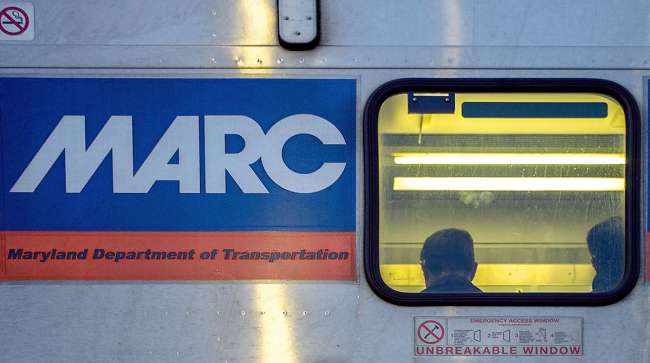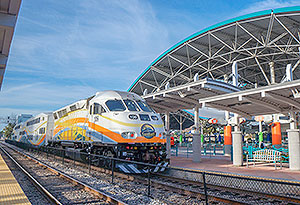Senior Reporter
Nine Railroads May Not Qualify for PTC Deadline Extension, FRA Says

WASHINGTON — Nine railroads have demonstrated little progress with installing an automatic braking system, jeopardizing their chances to qualify for a Dec. 31 deadline extension to implement the system, the country’s top railroad regulator told a Senate panel Oct. 3.
The nine railroads were Altamont Corridor Express, Capital Metropolitan Transportation Authority, Central Florida Rail Corridor (SunRail), Maryland Area Regional Commuter (MARC), New Jersey Transit, New Mexico Rail Runner Express, Peninsula Corridor Joint Powers Board (Caltrain), South Florida Regional Transportation Authority (Tri-Rail) and Trinity Railway Express.
Installation of positive train control system hardware is an initial phase of implementing the systems, and it’s one of the six statutory criteria required to qualify for a two-year extension to finalize full implementation. Major freight and commuter rail systems must implement PTC by Dec. 31, a deadline Congress approved three years ago.
Federal Railroad Administration chief Ronald Batory told the Senate Commerce Committee the agency is helping to facilitate the collaboration between railroad and supplier to “hasten, and urge, implementation.”

Batory
“FRA will continue to support and facilitate railroads’ implementation of PTC technology by utilizing the tools afforded by Congress and providing extensive technical assistance and guidance to railroads and suppliers,” Batory said. “We remain vigilant in harnessing and leveraging all the personnel, financial and other resources available to help expedite railroads’ implementation efforts.”
A few railroad accidents could have been prevented had PTC technology been adopted, Batory also told the committee.
According to the Government Accountability Office, it remains questionable whether passenger railroads will be able to implement PTC even if they are granted the two-year extension.
The federal watchdog determined recently most passenger railroads anticipate seeking an extension to the implementation deadline, and several operations are struggling to meet certain benchmarks. PTC’s full implementation, GAO explained, entails planning and system development, testing, system certification, equipment installation and achieving interoperability.
“Many commuter railroads plan to request substitute criteria which may result in those railroads remaining in the early stages of PTC implementation at the start of 2019,” GAO noted. “However, given that only one passenger railroad has submitted an extension request, it is unlikely we will know how many railroads will be granted an extension” by the end of this year.

SunRail is also among the nine. (Ilya Images/Shutterstock)
Committee Chairman John Thune (R-S.D.) emphasized railroads are at risk of not qualifying for an extension at the end of the year.
“If commuter railroads do not meet the requirements of the law by the end of the year, we must understand any effects this may have on the many riders who rely on rail service to commute to work, see family members or visit a doctor. We also need to have a clear picture of FRA’s enforcement strategy for entities that may not comply with the law,” Thune said.
Ranking member Bill Nelson (D-Fla.) added, “Implementing PTC can be expensive and complicated, and there are serious technical challenges involved. But I also know that many railroads have overcome these challenges.
“I remain concerned that some railroads haven’t lived up to their end of the bargain to meet the 2018 deadline.”
An Amtrak derailment in Washington state that killed three people in December 2017 was preventable with the use of PTC, according to federal investigators.

